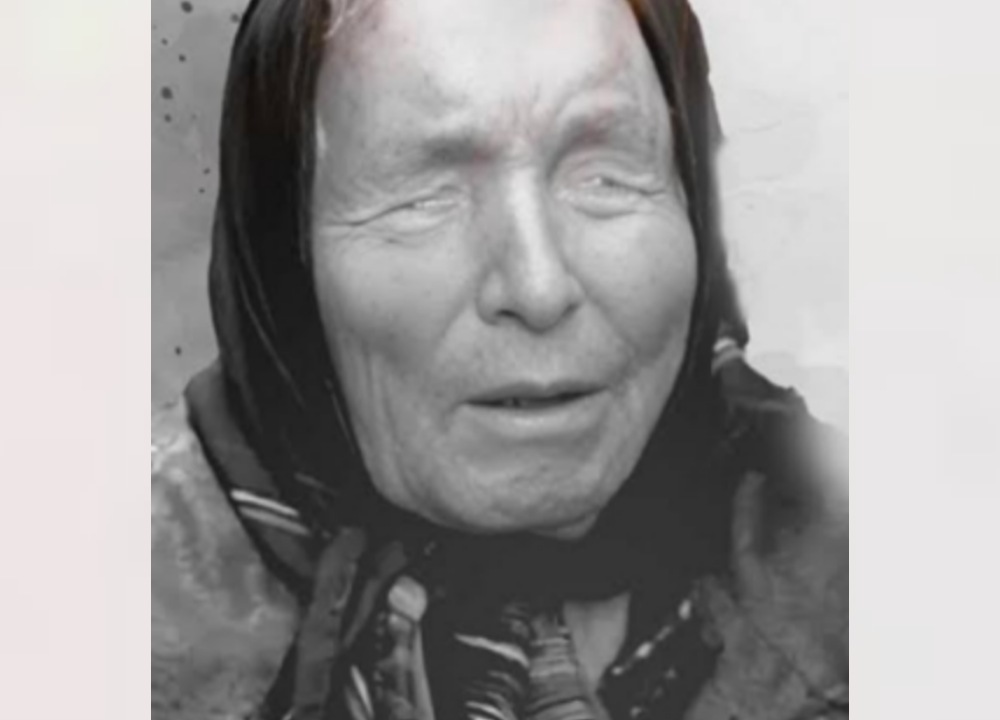BABA VANGA: The Nostradamus of the Balkans

Did you know that Baba Vanga, along with her predictions about global events, also predicted her death on August 11, 1996, which came to pass on that exact date?
Referred to as the Nostradamus of the Balkans, Vangeliya Pandeva Gushterova (née Surcheva), commonly known as Baba Vanga, was a blind Bulgarian attributed mystic and healer who claimed to have foreseen the future. She was widely known in Eastern Europe in the late 1970s and 1980s for her alleged abilities of clairvoyance and precognition.
Among her predictions, Baba Vanga warned that a new war would break out in 2025, endangering Europe's population and potentially leading to a global apocalypse. According to the reports, she explicitly mentioned that Russian President Vladimir Putin, would emerge victorious, further asserting that Russia would dominate the world. Vanga's past predictions, including significant historical events like the 9/11 attacks, reportedly have an 85% success rate. Her forecasts, like those of Nostradamus, raise concerns about the future stability of Europe amid ongoing geopolitical tensions.
Vanga was born on 3 October 1911 to Pando Surchev and Paraskeva Surcheva in Strumica in the Salonica vilayet of the Ottoman Empire (now North Macedonia). She was a premature baby who suffered from health complications. In accordance with local tradition, the baby was not given a name until she was deemed likely to survive. After the fall of communism, and even after her death in 1996, her persona has remained popular. Blind since her early childhood, she spent most of her life in the Rupite area of the Belasica mountains in Bulgaria.
During her childhood, her father was an Internal Macedonian Revolutionary Organization activist in the pro-Bulgarian branch, who seemed to have a strong sense of local Macedonian identity. He was conscripted into the Bulgarian Army during World War I, while Vanga's mother died soon after. After the war, Strumica was ceded to the Kingdom of Serbs, Croats and Slovenes (i.e., Yugoslavia). Yugoslav authorities arrested her father because of his pro-Bulgarian activity and confiscated all of his property leading to the family falling into poverty for many years. Her father, being a widower, eventually remarried, thus providing a stepmother to his daughter.
In 1923, she and her father moved to Novo Selo. According to her own testimony, a turning point in her life occurred when a "tornado" allegedly lifted her into the air and threw her into a nearby field. She was found after a long search. Witnesses described her as very frightened, and her eyes were covered with sand and dust; she was unable to open them because of the pain. There was money only for a partial operation to heal the injuries she had sustained. This resulted in a gradual loss of sight.
In 1925, Vanga was taken to a school for the blind in the city of Zemun, in the Kingdom of Serbs, Croats and Slovenes (now Serbia), where she spent three years and was taught to read Braille, play the piano, knit, cook, and clean. After the death of her stepmother, she returned home to take care of her younger siblings. The family lived in poverty.
During World War II, Yugoslavia was invaded and dismembered by the Axis powers and Strumica was annexed by Bulgaria. At that time Vanga attracted believers in her alleged ability to heal and soothsay—a number of people visited her, hoping to get a hint about whether their relatives were alive, or seeking the place where they died. Bulgarian tzar Boris III had visited her too.
On 10 May 1942, Vanga married Dimitar Gushterov. Gushterov, a Bulgarian soldier from the village of Krandzhilitsa near Petrich, had come to town seeking revenge for his brother's killing. Shortly before marriage, Dimitar and Vanga moved to Petrich, where she soon became well-known. Dimitar was then conscripted in the Bulgarian Army and was stationed in Northern Greece, which was annexed by Bulgaria at the time. Gushterov became ill, fell into alcoholism, and eventually died on 1 April 1962.
After World War II, the Bulgarian police and communist party tried to suppress Vanga's activities, but she continued to be visited by people. After police control and social pressure reduced in the 1960s, she was employed by the Petrich municipality and Institute of Suggestology (part of the Bulgarian Academy of Sciences). The former supported Vanga materially and took part of her income, while the latter tried to scientifically justify her activities. Members of the Politburo of the Bulgarian Communist Party and leading intellectuals also consulted her, including, reportedly, General Secretary of the Communist Party of the Soviet Union Leonid Brezhnev. In the 1990s, a church was built in Rupite with money left by her visitors, which was consecrated on 14 October 1994. Vanga died on 11 August 1996 from breast cancer.
Vanga was semi-literate in Bulgarian; she could read some Braille in Serbian. Numerous esoteric books on Vanga's life and alleged predictions were written. In the 1960s, the main task of the newly established Institute of Suggestology employing her was to study her alleged abilities. According to former Journal Metro columnist Jeff Yates, there is no written record of her alleged predictions, but her followers frequently attribute predictions to her. Many of the people who were close to her have stated that she never made some of the predictions attributed to her.
Some predictions attributed to her by her followers include: World War II, The Dissolution of the Soviet Union, Czechoslovakia and Yugoslavia; the Chernobyl disaster, the date of Stalin's death, the date of Tsar Boris III's death, the date of her own death, The Kursk submarine disaster, Princess Diana's death, 1985 Northern Bulgaria earthquake, the September 11 attacks, the 2004 Boxing Day Tsunami, the election of an African-American as the 44th President of the United States.
Fulfilling Vanga's last will and testament, her Petrich house was turned into a museum, which opened its doors for visitors on 5 May 2008. Her Rupite house was also opened for visitors on 25 March 2014. In 2012, she was posthumously awarded the title "Honorary Citizen" by the Municipal Council of Petrich.
Her alleged predictions and persona remain popular in parts of Southeast Europe, primarily Bulgaria and North Macedonia, as well as parts of Eastern Europe, especially Russia. Russian publications about her persona are numerous. "The Great Encyclopedia of Vanga" is a Russian online project dedicated to her. Vangelia, a Russian-language 24-episode TV series with elements of mysticism, was commissioned in 2013 by Channel One Russia.
Source: Wikipedia | Times Of India
#penglobalfactfile #BabaVanga


_1755775186.jpg)
